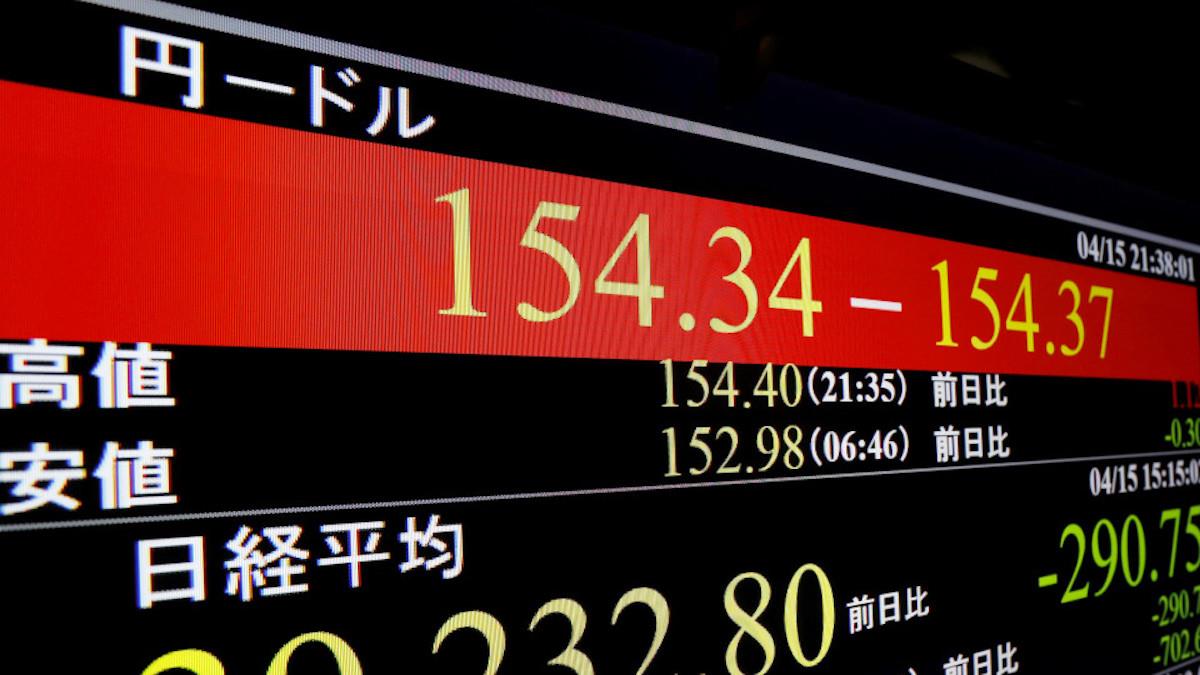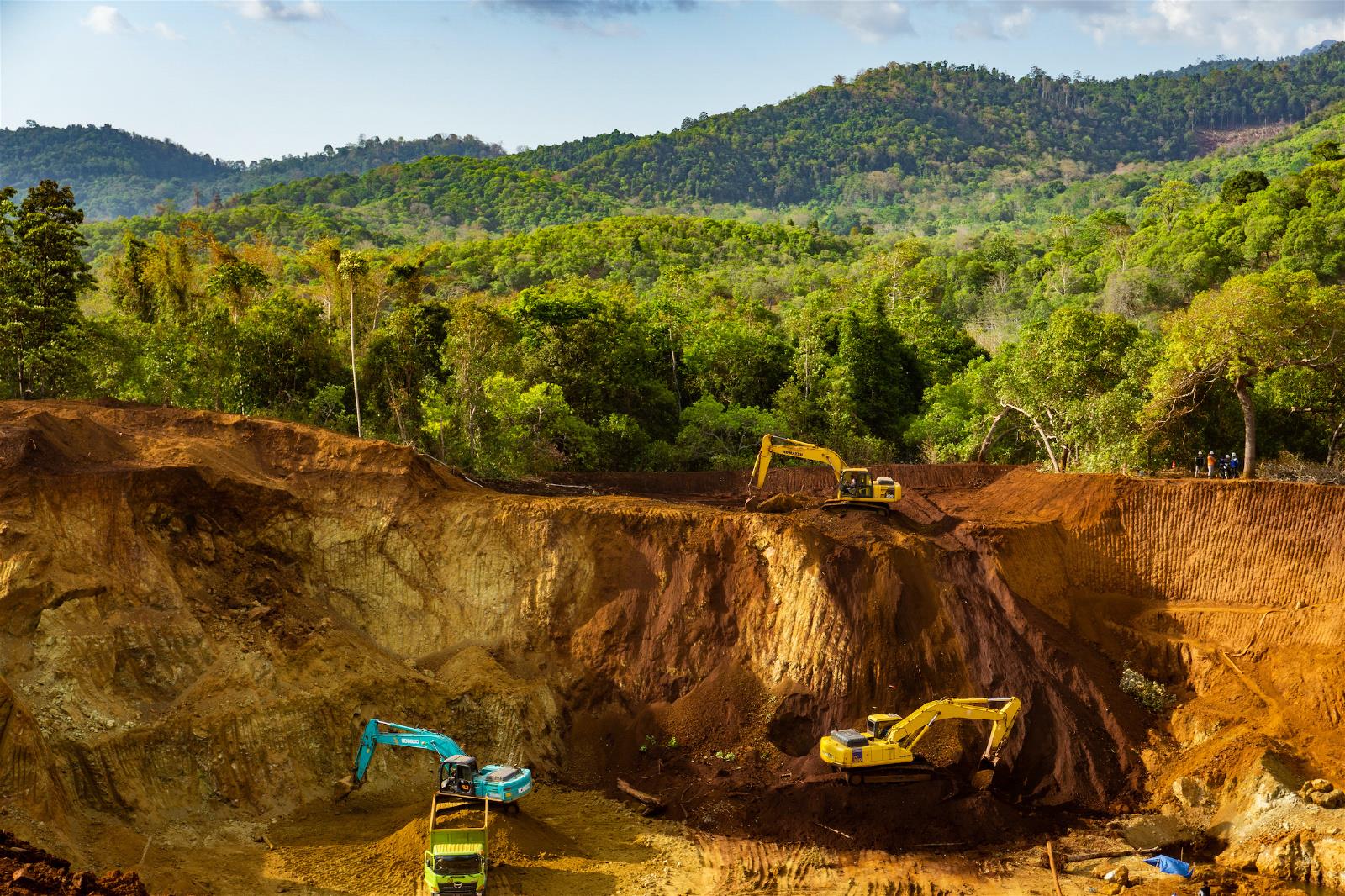Latest stories

Yen hits 34-year low, defying end of negative rates

Three takeaways from China's upbeat Q1 growth

Sri Lanka's lost revolution The agreement is already having real-life impacts on mineral supply chains. A month after signing the deal, the Japanese government announced its intent to subsidize companies for“up to half the cost of mine development and smelting projects of important minerals.”
The US is pursuing similar agreements with Indonesia and the European Union , with negotiations to continue throughout 2023.
The 2023 Indo-Pacific Economic Framework for
Prosperity Supply Chain Agreement
and the 2022 launching of the
Mineral Security Partnership
are examples of major efforts to address vulnerabilities to supply chain resilience through transnational forums.
These agreements' limited objectives leave much room for potential expansion. Moreover, many participating countries are
mineral-consuming nations
that need first to stimulate investment from their own private industries in their domestic production to realize the partnerships' goals.
Recommendations: leveraging pre-existing partnerships and frameworks The US government needs to expand its critical mineral treaties bilaterally and through pre-existing multinational frameworks.
America can strengthen its partnerships by adding structure and tangible benefits to previously“hollow” or under-incentivized pacts, like the oft-criticized I ndo-Pacific Economic Framework. Participants will find greater reason to invest in their relations with the US due to clearer opportunities to bolster their domestic production and stockpile capabilities.
In particular, the US government needs to finalize critical mineral agreements with Indonesia and the EU. A US-EU CMA will drastically invigorate the EU's extraction, processing, and recycling capabilities in tandem with the recently passed
European Critical Raw Materials Act .
A US-Indonesian CMA could specifically mandate extraction of Indonesia's considerable nickel reserves by suppliers independent of Chinese corporations' control. The Chinese government's influence in the Indonesian nickel market remains a major concern with friendshoring there but this deal will offer investment from friendly nations to counter this dominance.

A nickel mine in Sulawesi, Indonesia. Image: TwitterAn influx in private capital from democracies will offer alternative financing sources for Indonesian companies, whose operations will likely be augmented with improved labor and environmental standards.
In any case, increased investment from American tax credits through critical mineral agreements will certainly fund processing R&D, which can eventually drive innovations transforming the abilities of the US and its partners to produce domestically.
However, the potential for these benefits to be reaped from these CMAs or any future attempts at them will rely on the executive branch's negotiation prowess and leeway. The IRA and similarly structured incentives will only offer more bargaining power in the CMA model.
The Biden administration also can lean on frameworks such as the G7, the Quadrilateral Security Dialogue, and the Indo-Pacific Economic Forum to establish supply chain resilience and safeguard a“free and open Indo-Pacific.”
Not only do many countries in these groups offer major extraction and processing capacities, but shared mineral security aligns closely with the regional security that the dialogues were established to maintain.
The existing mineral negotiations within these groups lack tangible commitments from the involved countries, such as the introduction of tax credits or subsidies, lowering of quotas, joint ventures and addressing other non-tariff barriers that may arise. A limited-objective critical minerals agreement that qualifies for the EV tax credit for all countries in the frameworks can spark investment and gain these commitments.
These incentives can further influence the fulfillment of Washington's other external aspirations, like the maintenance of environmental and labor standards in producing nations.
To achieve these policies, the executive branch should be given more leniency to pursue critical minerals agreements independently. Members of Congress criticized the Biden administration for classifying the US-Japan CMA as a
free trade agreement
without congressional approval.
To solve this, Congress can renew the
Trade Promotion Authority
that expired in 2021, granting the president the ability to negotiate for free trade agreements or CMAs to remove tariffs or grant tax credit benefits. If this route is unrealistic, legislators can also consider developing a separate, streamlined approval process for CMAs.

Sign up for one of our free newsletters The Daily ReportStart your day right with Asia Times' top stories AT Weekly ReportA weekly roundup of Asia Times' most-read stories
By opening the advantages of the IRA to additional trading partners, the US will unwind the law's anti-globalist reshoring provisions. Direct actions to institute CMAs will further lessen the international apprehension towards Washington's
seemingly protectionist policies
and make other countries readier to help address climate and security targets.
Likewise, Congress can develop more credits or subsidies, similar to the IRAs, for mineral-intensive products ranging from solar panels to aerospace components. These measures will enhance existing and future stimulating endeavors made by Congress, thus heightening their likelihood of guaranteeing resilient critical mineral supply chains.
Conclusion The PRC's export ban presents an opportunity for the United States to counter China's dominance of critical mineral markets. The Biden administration's wielding of critical minerals agreements and frameworks to gain favorable trading conditions potentially represents a new, positive model for trade and supply chain security.
While benefiting the US, these agreements will also aid in the development of other countries' extraction and processing industries, primarily by raising foreign investment from friendly nations over Chinese investment. Countries such as Indonesia will witness better quality of life and labor standards in the mineral industry.
By relying on established partners and international forums, the US can alleviate its own and allies' mineral supply dependencies from the PRC, which threaten Indo-Pacific stability.
Caleb Workman (...) is an officer in the United States Army. He graduated from the Colorado School of Mines, where he earned a BS in economics and an MS in engineering and technology management. During his studies, he also interned at the Payne Institute for Public Policy and focused on material supply challenges.
This article was originally published by Pacific Forum . It is republished with permission. The views expressed are those of the author.
Already have an account?Sign in Sign up here to comment on Asia Times stories Thank you for registering!
An account was already registered with this email. Please check your inbox for an authentication link.